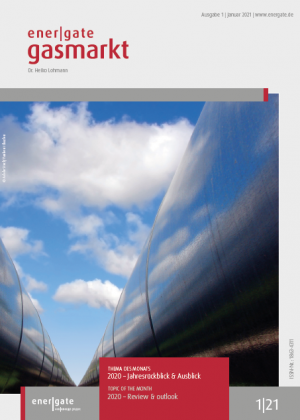Most topics that were important in 2020 will still be on the agenda next year, too. This means that to a certain extent the 2020 review already contains elements of an outlook for 2021.
Covid-19: The overarching topic
Naturally, 2020 will remain on everybody’s mind irrespective of topics related to energy and gas. Covid-19 has and will have a substantial impact on the daily life of us all. It involves not only a dramatic change of all private routines, but also of all work processes. Frankly, even in March, the author of this publication underestimated the severity of the impact and the long-lasting consequences. However, what is also worth mentioning is the relative resilience of the gas sector during the pandemic - at least so far. In December, the author of this publication had the latest discussions with several senior managers from larger gas sales companies. All report a relatively good business in 2020. Nevertheless, gas sales were lower due to Covid-19 in the industrial and commercial sector. Therefore, surprises are possible in 2021 in the clearing of network accounts. Most standard load profiles presumably overestimated the offtakes mainly in the commercial sector. In the Gaspool market area, the system was long. And this was more pronounced than during the last five summers. The market area operator explicitly mentions in the recently published report on System Balancing Action the system condition over the summer. Especially in March, this led to significantly higher balances in the network accounts, where these deviations between effective offtake and standard load profile figures are collected, compared to the same period last year.



